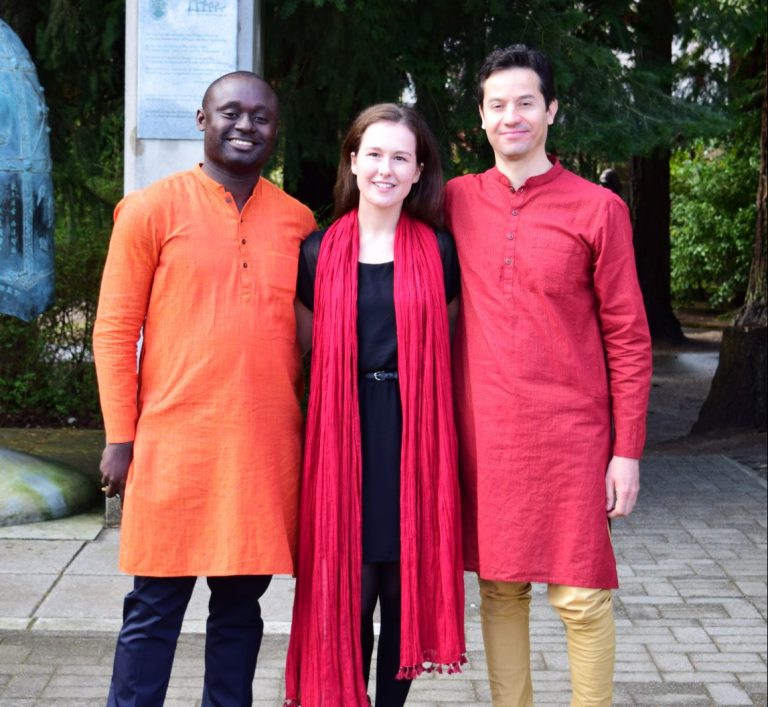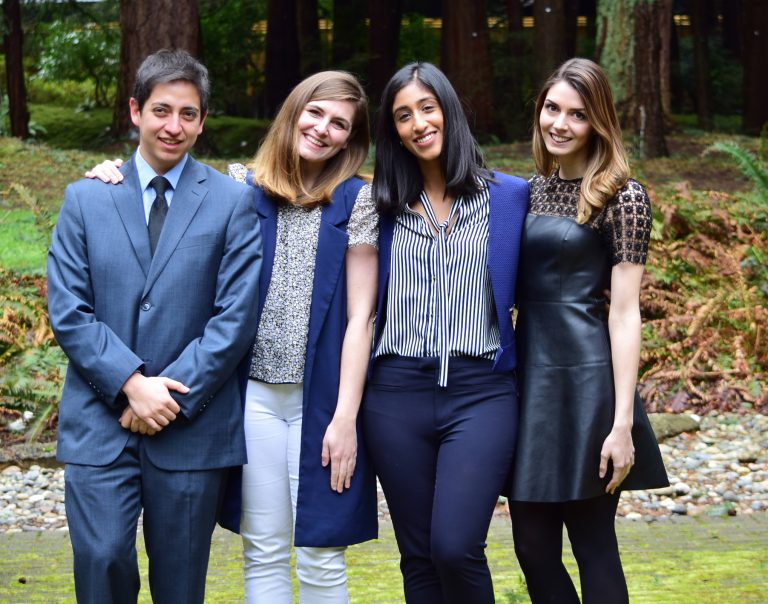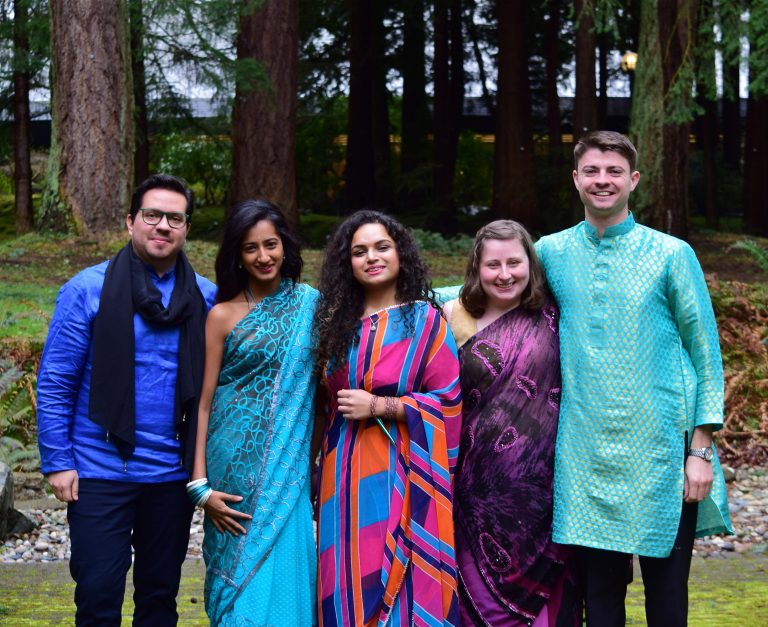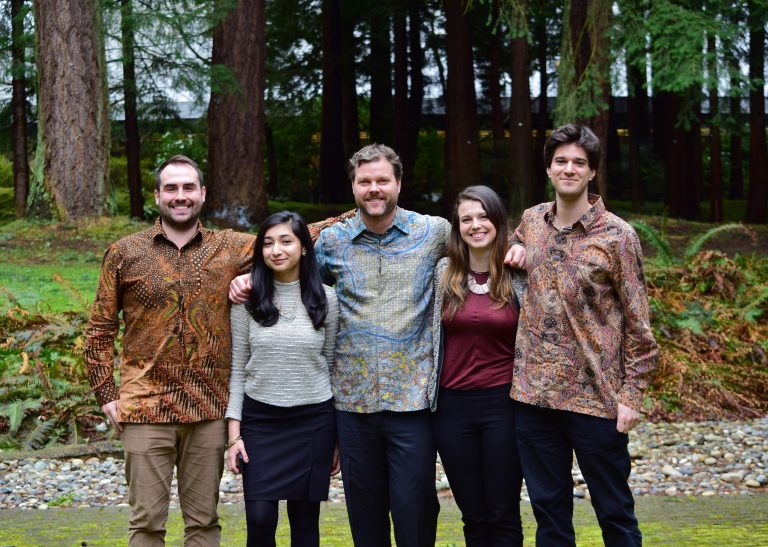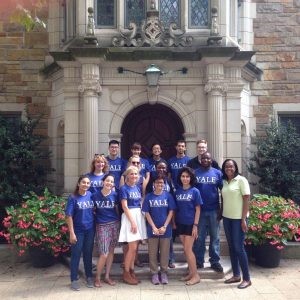The hype behind nuclear energy doesn’t match the reality
IAI News, November 11, 2025
Water woes from data centres
with Justine Babin, Canadian Dimension, September 22, 2025
R. Rajaraman, scholar and citizen-scientist who informed public debate about nuclear weapons in South Asia and beyond
with Zia Mian, Bulletin of the Atomic Scientists Online, August 18, 2025
Why the US Won’t Be Able to Help Build Taiwan’s Nuclear Future
with Benjamin Yang, The Diplomat, May 26, 2025
Canada should extricate itself from the F-35 and more
with Janani Rangarajan and Lydia Mikhail, Canadian Dimension, April 25, 2025
Nuclear energy — dangerous concessions on liability
with Suvrat Raju, Hindu, February 13, 2025
Continued propaganda about AI and nuclear power
Counterpunch, March 13, 2025
Nuclear Weapons create and exacerbate human insecurity
Heinrich Böll Stiftung, November 11, 2024
Dangerous hype: Big Tech’s nuclear lies
Counterpunch, November 1, 2024
Nuclear power as a source of environmental injustice
with Laura Tanguay, Nuclear Monitor, October 31, 2024
Nuclear power on the prairies is a green smokescreen
with Quinn Goranson, National Observer, August 19, 2024
Eastern Europe’s purchase of US nuclear reactors is primarily about military ties, not climate change
with Maha Siddiqui, Bulletin of the Atomic Scientists Online, August 2, 2024
More Nuclear Reactors? Deceptive Tunes from the Pied Piper of Vienna
with Jixiang Wang, Counterpunch, July 26, 2024
How India’s 1974 ‘peaceful’ nuclear test in Pokhran changed the atomic energy debate
with Itty Abraham, Frontline, June 1, 2024
Small reactors don’t add up as a viable energy source
with Sophie Groll, 360info, April 15, 2024
Tripling nuclear energy by 2050 will take a miracle, and miracles don’t happen
with Farrukh A. Chishtie, Down to Earth, February 3, 2024
The collapse of NuScale’s project should spell the end for small modular nuclear reactors
Utility Dive, January 31, 2024
COP28 pledge to expand nuclear capacity is out of touch with reality
PV Magazine, January 30, 2024
Ontario Power Generation wasting time exploring French reactors
with Laura Tanguay, National Observer, January 18, 2024
‘PR Fairy Dust’ Has CanadaTripling Nuclear Capacity by 2050
with Susan O’Donnell, The Energy Mix January 9, 2024
Canada needs to accelerate its transition to renewable energy
With Jixiang Wang, Policy Options, September 22, 2023
The global footprint of nuclear fallout
Down to Earth, August 5, 2023
Wishful thinking about nuclear energy won’t get us to net zero
with Susan O’Donnell, NB Media Coop July 7, 2023 (originally published in The Hill Times, July 5, 2023)
Canadian reactors that “recycle” plutonium would create more problems than they solve
with Jungmin Kang, Bulletin of the Atomic Scientists, May 25, 2023
The hype and the reality of small modular reactors
with Seok Kwanghoon, Hankyoreh, May 25, 2023
Infeasible: Nuclear Energy as a solution to Climate Change
Physics and Society, April 2023
India’s Prototype Fast Breeder Reactor delayed again
IPFM Blog, March 5, 2023
Moltex’s nuclear ransom note should be rejected
with Susan O’Donnell, National Observer, February 28, 2023
Shouldn’t a new and experimental nuclear reactor for New Brunswick deserve a federal impact assessment?
with Susan O’Donnell, NB Media Coop, January 16, 2023 (published earlier in The Hill Times)
Nuclear Fusion: It’s really about nuclear weapons, not clean energy
Pearls and Irritations, December 22, 2022
Clean Energy or Weapons? What the ‘Breakthrough’ in Nuclear Fusion Really Means
The Wire Science, December 15, 2022
Plutonium is plutonium, period, and separating it increases nuclear proliferation risks
with Susan O’Donnell, The Hill Times, December 5, 2022
Will expanding Canada’s plutonium interests support the peaceful use of nuclear energy?
with Susan O’Donnell, The Hill Times, November 10, 2022 (also published in NB Media Coop)
Book Review: Ploughshares and Swords: India’s Nuclear Program in the Global Cold War by Jayita Sarkar
LSE Book Review, October 19, 2022
Zaporizhzhia on the brink: How deteriorating conditions at the nuclear power plant could lead to disaster
with Zakhar Popovych and Denys I. Bondar, Bulletin of the Atomic Scientists Online, October 7, 2022
Bill Gates and Techno-fix Delusions
with Cassandra Jeffery, Against the Current, September/October, 2022
Three Mile Island, Chernobyl, Fukushima: And now Zaporizhzhia?
Down To Earth, August 16, 2022
Beyond first steps: Phasing out nuclear weapons and energy
In Depth News, August 16, 2022
MidAmerican shouldn’t waste money studying small nuclear reactors
with Maureen McCue, Des Moines Register, July 24, 2022
The Impossible Promises of Small Modular Nuclear Reactors
Peace Magazine, July 2022 (also published in Beyond Nuclear International and in two parts in NB Media Coop)
Molten salt reactors were trouble in the 1960s—and they remain trouble today
Bulletin of the Atomic Scientists Online, June 20, 2022
Even China Cannot Rescue Nuclear Power from its Woes
Centre for Asian Studies, University of Colorado, April 12, 2022
India’s Inadvertent Missile Launch Underscores the Risk of Accidental Nuclear Warfare
with Zia Mian, Scientific American, April 8, 2022
Thorium-fueled nuclear reactors won’t help cut emissions
with Fabby Tumiwa and Richard Tanter, The Jakarta Post, March 12, 2022
Shutdown this misguided energy policy
with Suvrat Raju, The Hindu, March 12, 2022
Ontario Power is irresponsible to consider another nuclear reactor
with Kerrie Blaise, Rabble, January 18, 2022
Small modular reactors offer no hope for nuclear energy
with Stephen Thomas, Advanced Science News, January 14, 2022
India
with Prerna Gupta, in Assuring Destruction Forever, 2022 edition
How Electric Utilities Thwart Climate Action: Politics and Power
with Isha Bhasin and Sara Nelson, Against the Current, January/February 2022
Three Myths About Renewable Energy and the Grid, Debunked
with Amory Lovins, Yale Environment 360, December 9, 2021
The Rooppur Nuclear Power Plant: The Long, Troubled, Costly and Dangerous Life and After-Life of a Very Old Idea
with Zia Mian, Sarbojonkotha, November 1, 2021
Look before you leap on nuclear
with Arjun Makhijani, Caspar Star Tribune, October 17, 2021
Why molten salt reactors are problematic and Canada investing in them is a waste
The Conversation, September 14, 2021
An atomic warning: Review of The Wretched Atom: America’s Global Gamble with Peaceful Nuclear Technology by Jacob Darwin Hamblin
Science, July 23, 2021
Setting the Stage for Wars During a Global Pandemic
Inter Press Service, July 16, 2021
More nuclear reactors (SMRs): A bad investment for New Brunswick
with Susan O’Donnell and Gordon Edwards, NB Media Co-op, April 4, 2021
Why Small Modular Nuclear Reactors Won’t Help Counter the Climate Crisis
with Arjun Makhijani, Environmental Working Group, March 25, 2021
Small modular nuclear reactors and net-zero carbon emissions by 2050? The math doesn’t add up
The Hill Times, March 10, 2021
Problems with the Prototype Fast Breeder Reactor
with Nidhi Sharma, The India Forum, March 5, 2021
The proposed nuclear reactors (SMRs) for New Brunswick
with Susan O’Donnell, Louise Comeau, Janice Harvey, and Gordon Edwards, Briefing paper Submitted to Minister Mike Holland, Natural Resources and Energy Development, Government of New Brunswick, March 1, 2021
Big Money, Nuclear Subsidies, and Systemic Corruption
with Cassandra Jeffery, Bulletin of the Atomic Scientists Online, February 12, 2021
Covid-19, Climate Change and the Road not to be Taken
with Rohan D’Souza, Monthly Review Online, February 9, 2021
Why the Liberals’ nuclear power plan is a pipe dream
with Eva Schacherl, Ottawa Citizen, November 16, 2020
Is nuclear power Utah’s future? Red flags raise doubt
Deseret News, October 27, 2020
No business case for new nuclear reactors in New Brunswick
NB Media Co-op, September 22, 2020
Small modular reactors aren’t the energy answer for remote communities and mines
with Sarah Froese, and Nadja Kunz, Policy Options, August 26, 2020
Energy, Injustice & the Green New Deal
with Linda Ddamba and Sara Nelson, Progressive International, August 25, 2020
Taking nuclear vulnerabilities seriously
with Benoît Pelopidas, Hindu, August 6, 2020
Germany Gets Both: No Nuclear, Less Carbon
with Solène Delumeau, World Energy Opinion, Energyintel.com, July 2020
Should nuclear energy be part of a Green New Deal?
with Schyler Edmundson, Toronto Star, June 30, 2020
No market for Australian uranium in India
with Cassandra Jeffery, East Asia Forum, June 23, 2020
Why nuclear power doesn’t fit into any good green New Deal
with Schyler Edmundson, Monticello Times, June 18, 2020
A dirty battle for a nuclear bailout in Ohio
with Shakiba Fadaie, Bulletin of the Atomic Scientists Online, April 21, 2020
A perverse invitation to nuclear disasters
with Cassandra Jeffery, Record Eagle, March 15, 2020
Starting the Olympic torch relay in Fukushima should remind us of the dangers of nuclear power
with Cassandra Jeffery, The Japan Times, March 13, 2020
Pushing the wrong energy buttons
with Suvrat Raju, Hindu, March 3, 2020
The Computer Infection of Kudankulam and its Implications
with Lauren Borja, The India Forum, January 10, 2020
Why Ontario must rethink its nuclear refurbishment plans
with Xiao Wei, The Conversation, January 6, 2020
Ontario can phase out nuclear and avoid increased carbon emissions
with Xiao Wei, The Conversation, January 5, 2020
The Irrelevance of Deterrence
Inference: International Review of Science, December 2019
Nuclear Dangers of the Naval Kind
with Zia Mian and A. H. Nayyar, Himal, October 28, 2019
India, Pakistan, Kashmir: Taking the War Option off the Table
with Zia Mian, A. H. Nayyar, and Sandeep Pandey, Bulletin of the Atomic Scientists Online, September 23, 2019
Canada Could Slow the Accelerating Nuclear Arms Race
with Lauren Borja, The Conversation, September 2, 2019
Can Canada Play a Part in Averting the Collapse of Arms Control?
with Emily Enright, Open Canada, August 20, 2019
At Vancouver’s Clean Energy Summit, Nuclear Is Making a Play
with Tanya Glafenhein, The Tyee, May 27, 2019
A Decade After the Nuclear Deal
with Prerna Gupta, The India Forum, May 3, 2019
The Trump administration is eager to sell nuclear reactors to Saudi Arabia. But why?
with Aileen Murphy, Bulletin of the Atomic Scientists Online, April 16, 2019
Cyber Vulnerabilities and Nuclear Weapons Risks
with Lauren Borja, Physics and Society, Vol. 48, No.1, January 2019
Jaitapur: A risky and expensive project
with Suvrat Raju, Hindu, January 8, 2019
Want to solve climate problem? Nuclear isn’t the answer
Down to Earth, December 10, 2018
Should We Subsidize Nuclear Power to Fight Climate Change?
Scientific American Blog, December 3, 2018
The argument from cyberspace for eliminating nuclear weapons
with Lauren Borja, The Conversation, November 7, 2018
Are Thousands of New Nuclear Generators in Canada’s Future?
The Tyee, November 7, 2018
Nuclear Power Will Not Save Us From Climate Change: How the IPCC’s solutions for reversing the Earth’s warming encourage business as usual
with Robert Jensen, Yes Magazine, November 2, 2018
Another chance to step up: Canada and the Nuclear Ban Treaty
with Laurélène Faye, Bulletin of the Atomic Scientists Online, July 6, 2018
The future of nuclear power in US is bleak
The Hill, June 23, 2018
On the 20th anniversary of the 1998 nuclear tests by India and Pakistan
with Zia Mian, Bulletin of the Atomic Scientists Online, June 1, 2018
HTRs will not help establish nuclear power in Jordan
with Ali Ahmad, The Jordan Times, May 10, 2018
The Long Lasting Nature of the Problems at Fukushima: 7 Years of the Disaster and Counting
Dianuke, March 20, 2018
A reminder from Hawaii
with Lauren Borja, Bulletin of the Atomic Scientists Online, January 17, 2018
Canada must change course on nuclear disarmament
with Lauren Borja, Vancouver Sun, December 10, 2017
Canada is missing its chance to shut the gate on nuclear weapons everywhere
with Lauren Borja, The Conversation, October 2, 2017
Small Nuclear Power Reactors: Future or Folly
The Conversation, July 24, 2017
No Indonesian market for SMRs
Bulletin of the Atomic Scientists Online, June 28, 2017
Nuclear Power: Expensive, hazardous and inequitable
with Suvrat Raju, Hindu, June 5, 2017
Ending nuclear lawlessness
with Zia Mian, Hindu, April 13, 2017
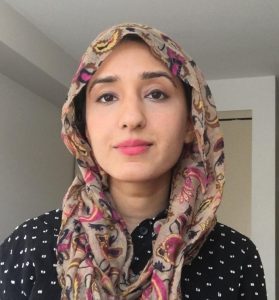 Khadija Anjum is a Liu Scholar and a PhD candidate at the University of British Columbia’s School of Community and Regional Planning and a recipient of the Vanier Canada Graduate Scholarship. Her interdisciplinary research relies on quantitative and qualitative methods approaches to gain planning and policy insights for food security amid high food prices and other sustainability challenges. Her research to date has focused primarily on Pakistan, and other lower-middle income Global South countries, particularly those in South Asia.
Khadija Anjum is a Liu Scholar and a PhD candidate at the University of British Columbia’s School of Community and Regional Planning and a recipient of the Vanier Canada Graduate Scholarship. Her interdisciplinary research relies on quantitative and qualitative methods approaches to gain planning and policy insights for food security amid high food prices and other sustainability challenges. Her research to date has focused primarily on Pakistan, and other lower-middle income Global South countries, particularly those in South Asia.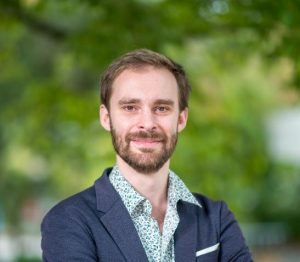 Raphael Deberdt is a Liu Scholar and PhD student in the Department of Anthropology of the University of British Columbia and a recipient of the Public Scholar Initiative. His research is inscribed in the subfield of mining anthropology and explores the impacts that extractive industries hold on local communities. He studies the role of artisanal miners in the cobalt industry in the Democratic Republic of the Congo (DRC) and their integration in global markets, particularly in the battery manufacturing sector.
Raphael Deberdt is a Liu Scholar and PhD student in the Department of Anthropology of the University of British Columbia and a recipient of the Public Scholar Initiative. His research is inscribed in the subfield of mining anthropology and explores the impacts that extractive industries hold on local communities. He studies the role of artisanal miners in the cobalt industry in the Democratic Republic of the Congo (DRC) and their integration in global markets, particularly in the battery manufacturing sector.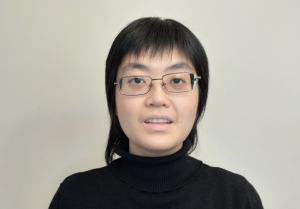 Karen Lok Yi Wong is a Liu Scholar and a Ph.D. student at the University of British Columbia (UBC) School of Social Work. She received her MA in social policy at the University of York, the United Kingdom and Master of Social Work at UBC, Canada.
Karen Lok Yi Wong is a Liu Scholar and a Ph.D. student at the University of British Columbia (UBC) School of Social Work. She received her MA in social policy at the University of York, the United Kingdom and Master of Social Work at UBC, Canada.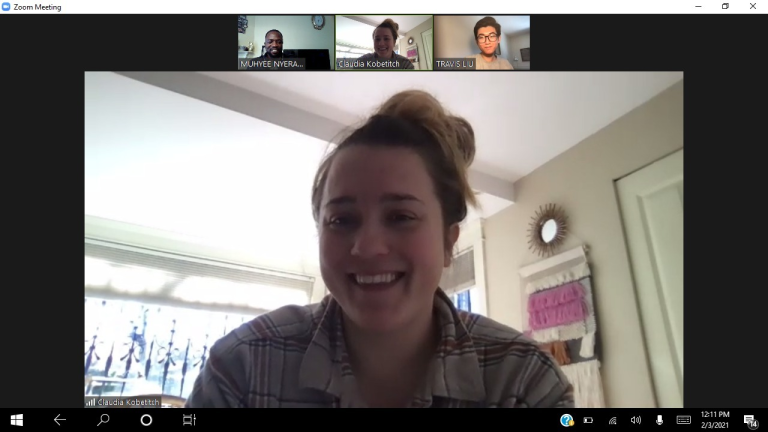
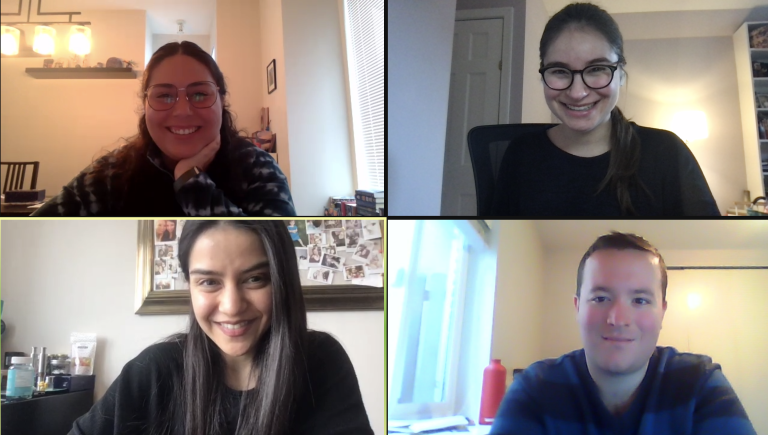
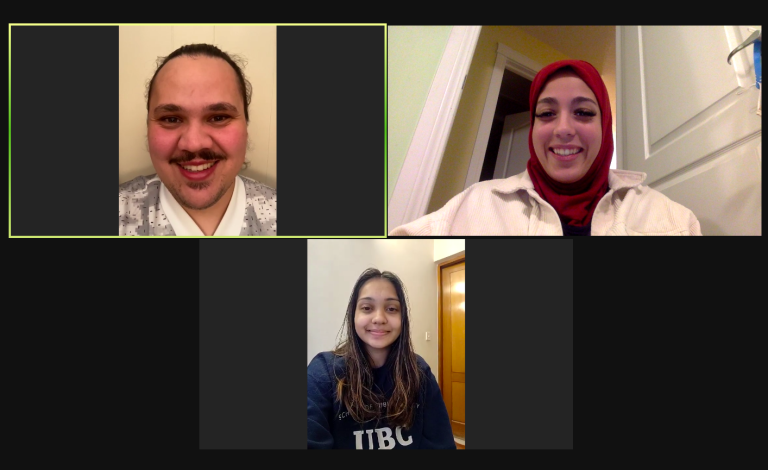
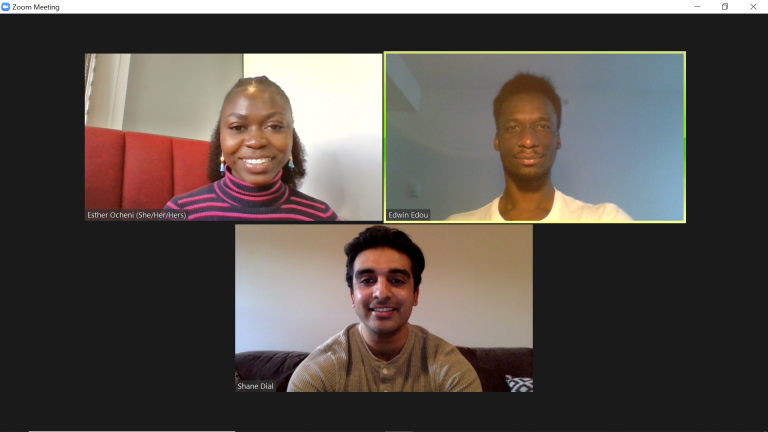
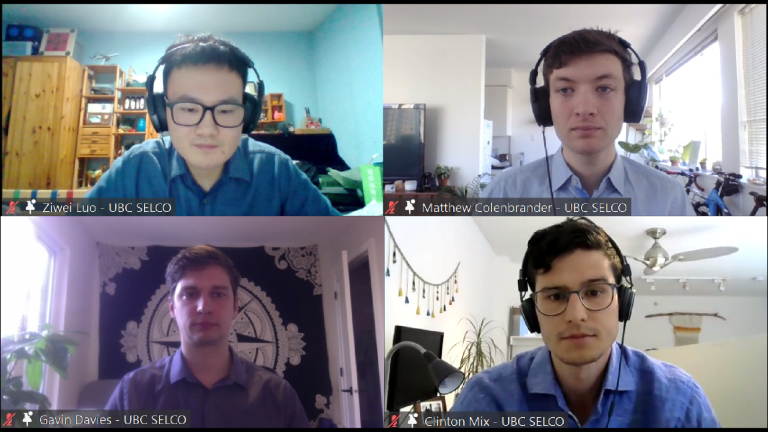
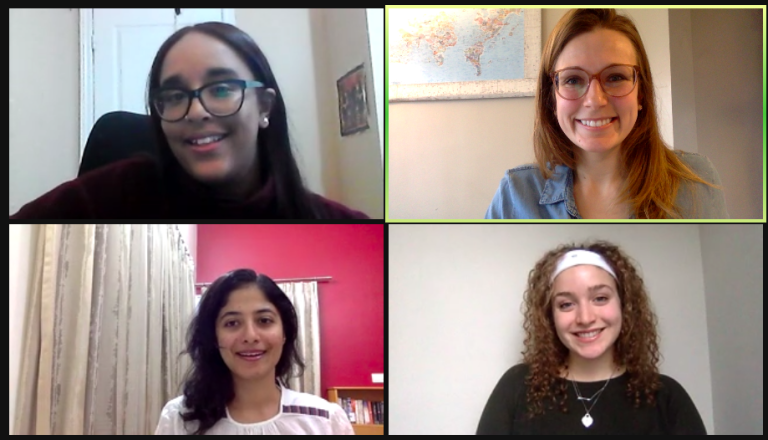
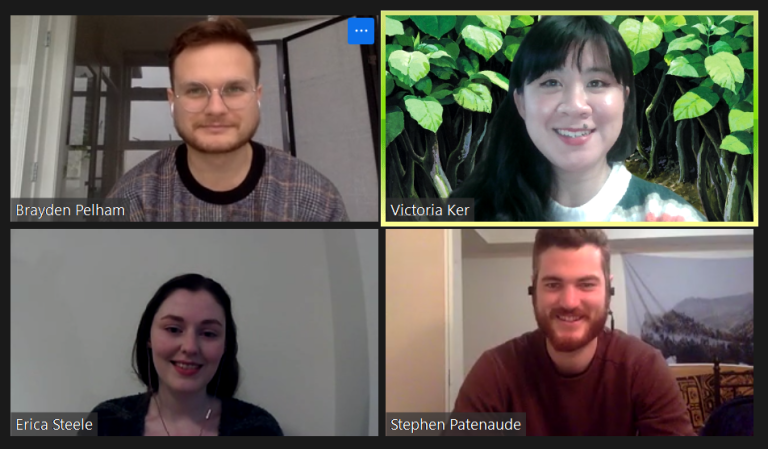
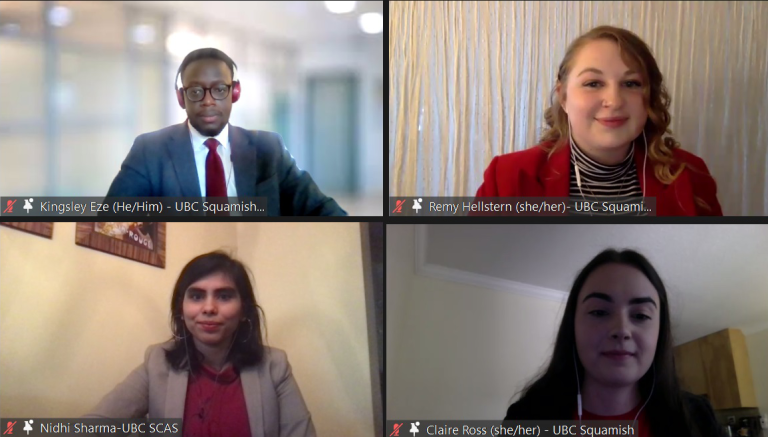
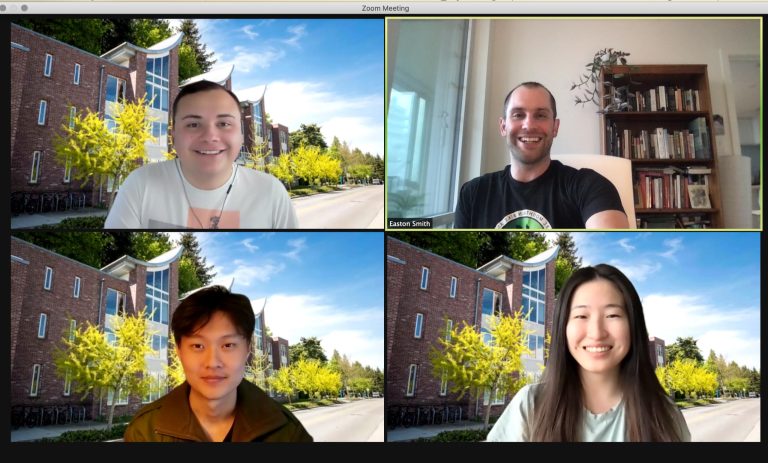
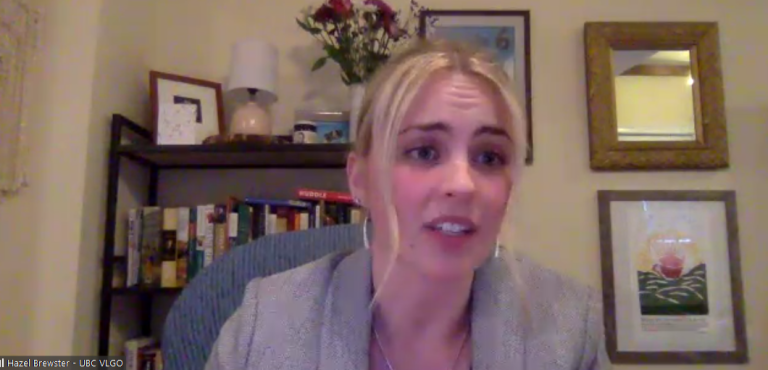
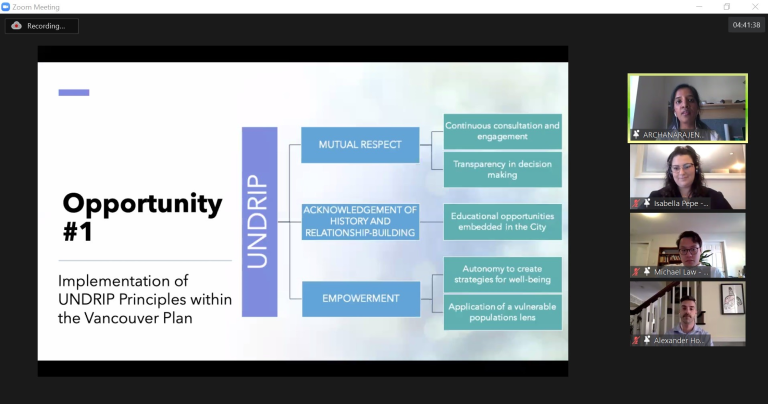
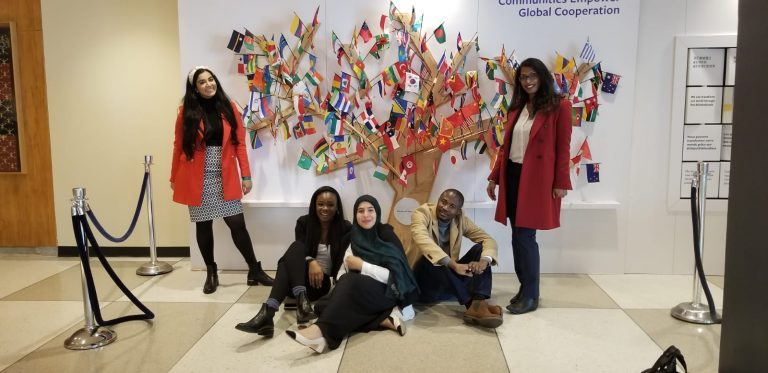
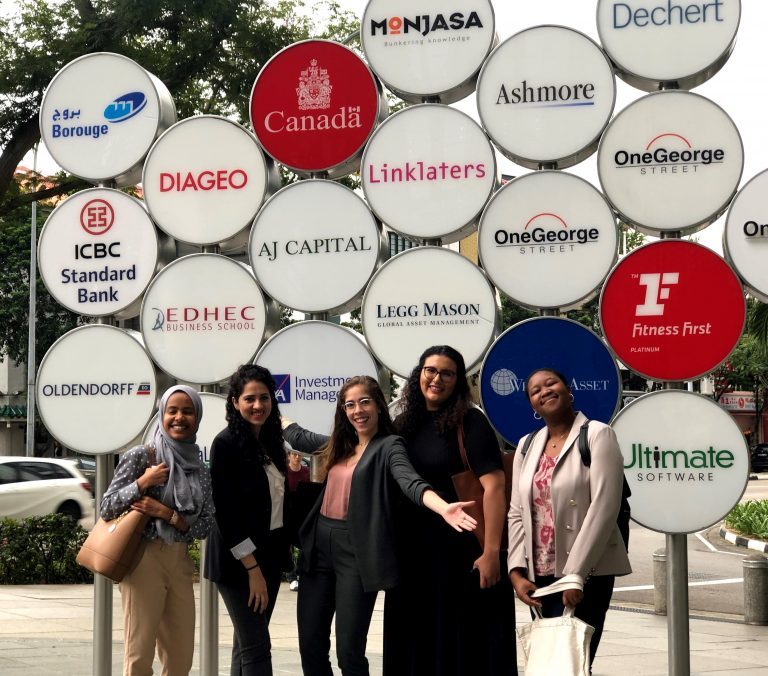
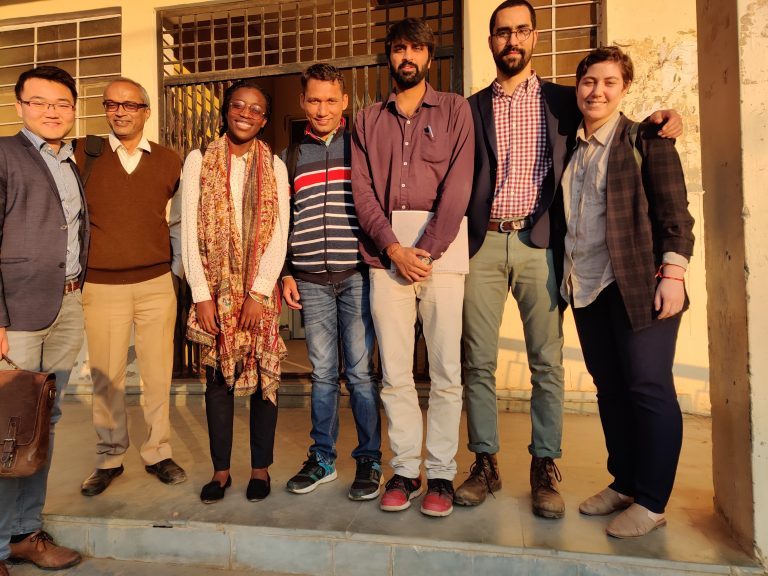
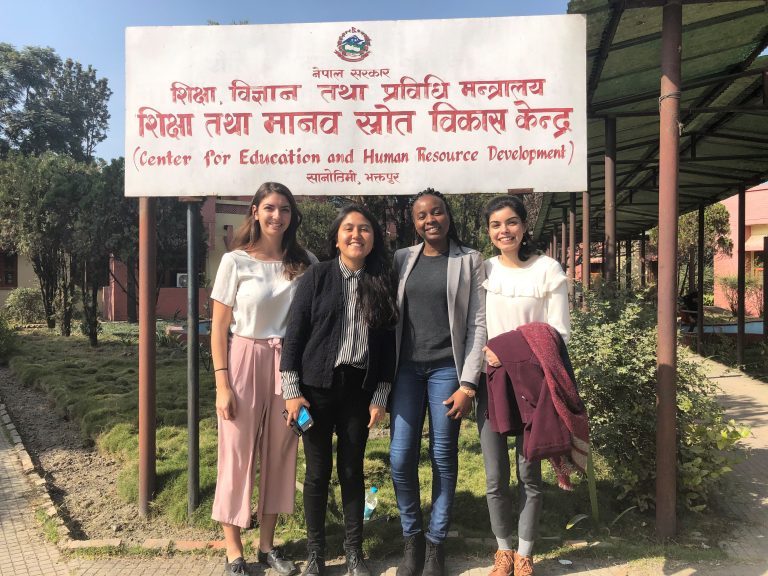


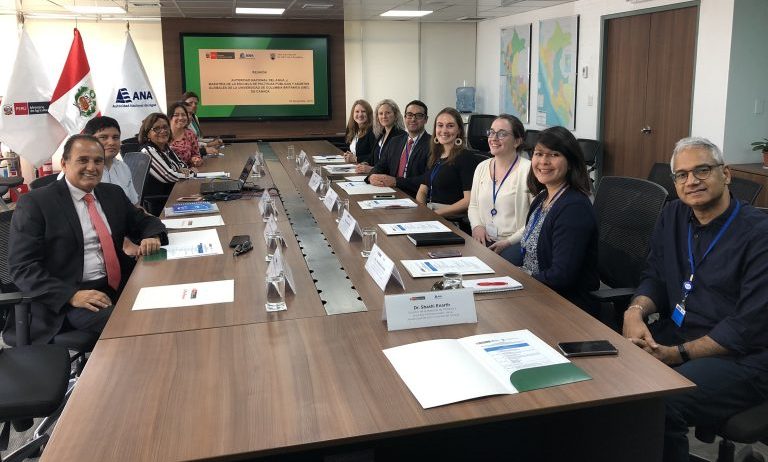
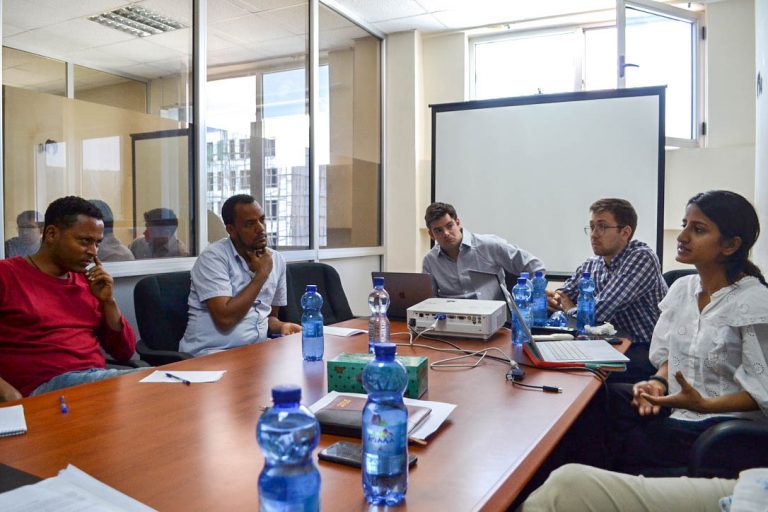
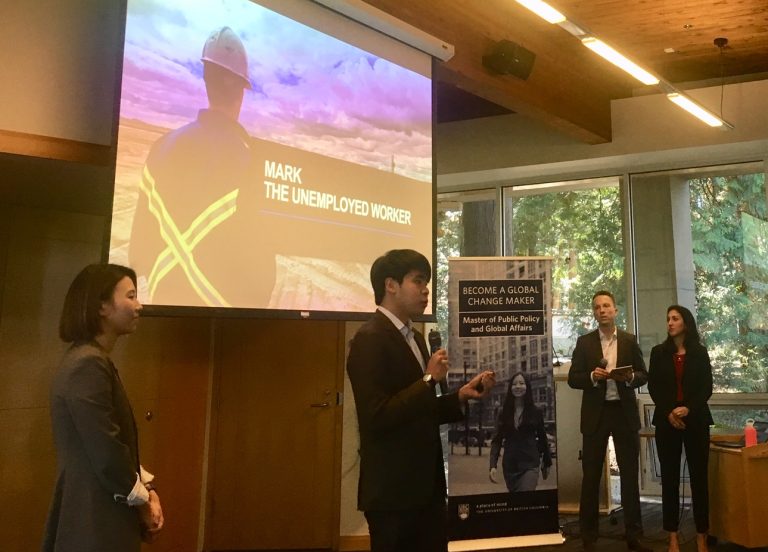
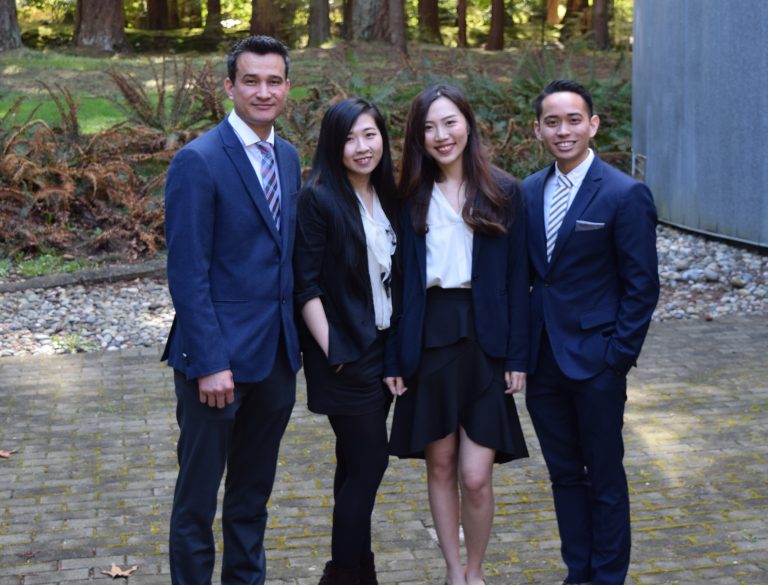
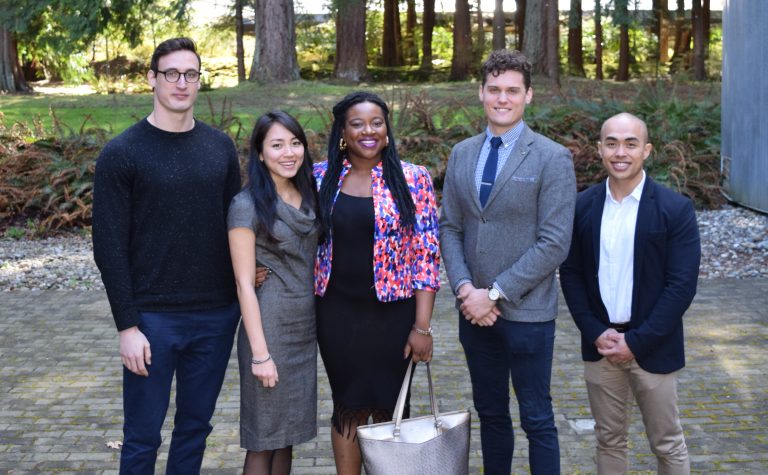
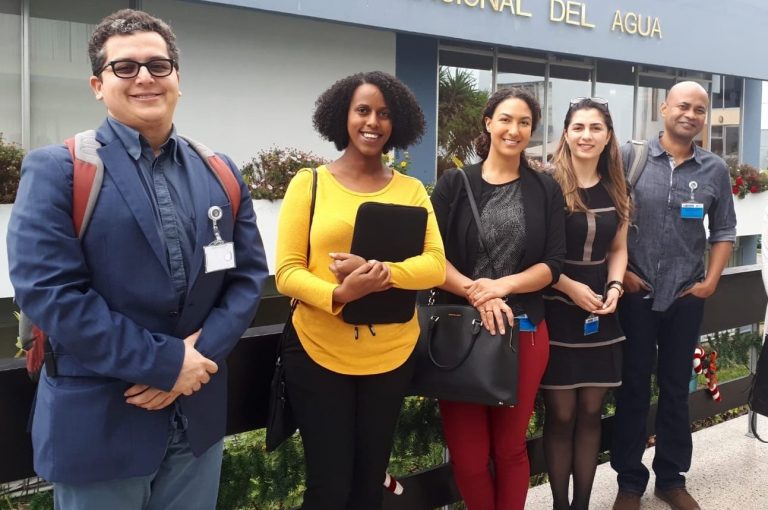
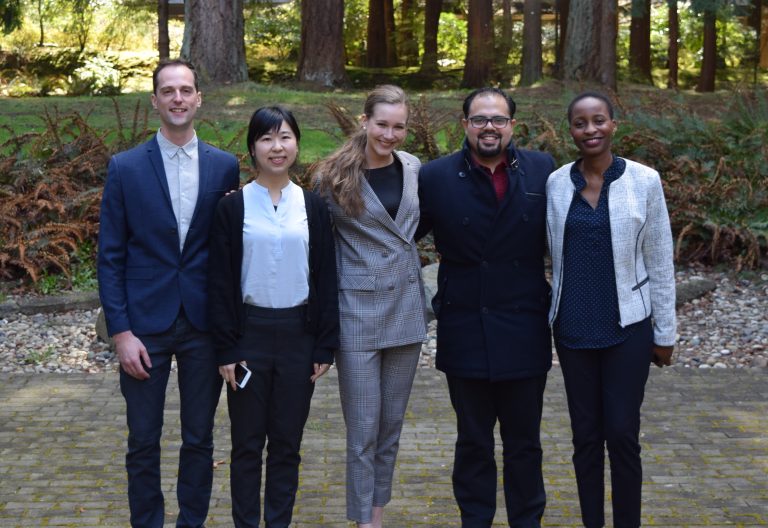
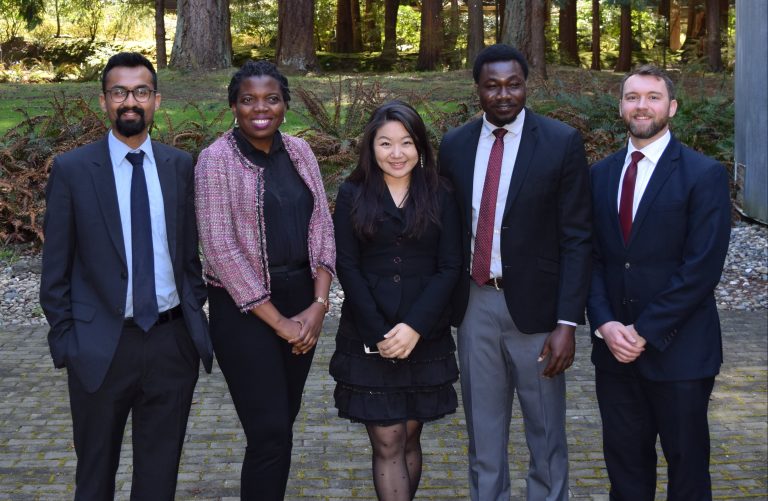
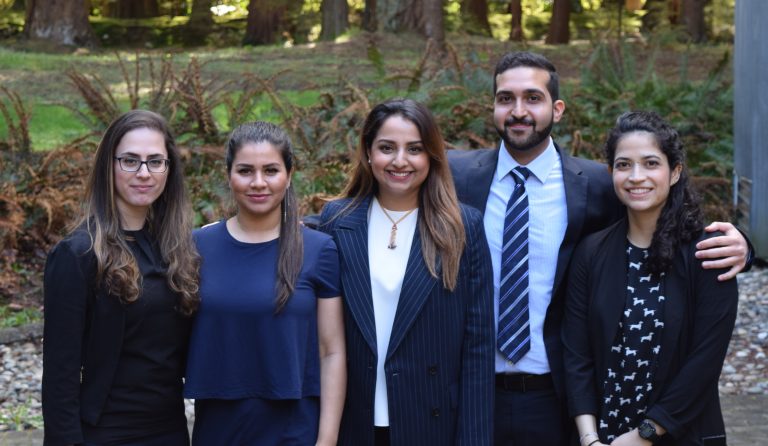
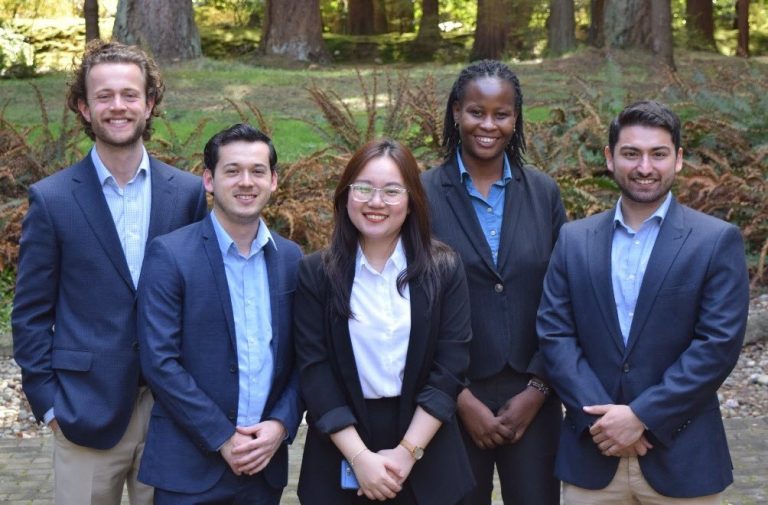
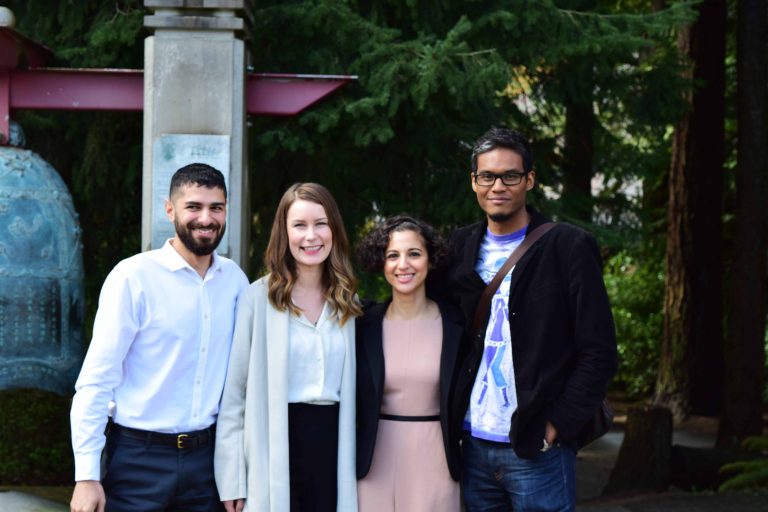
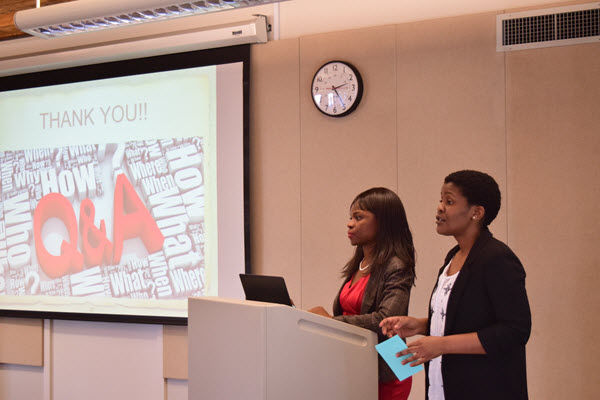
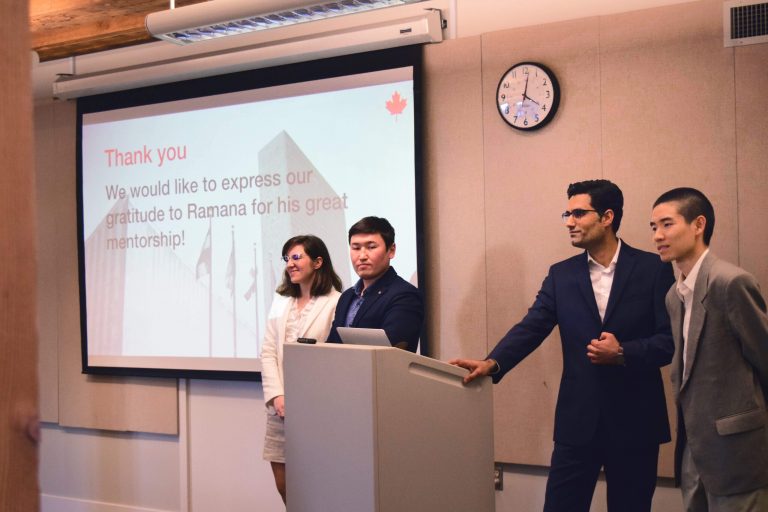
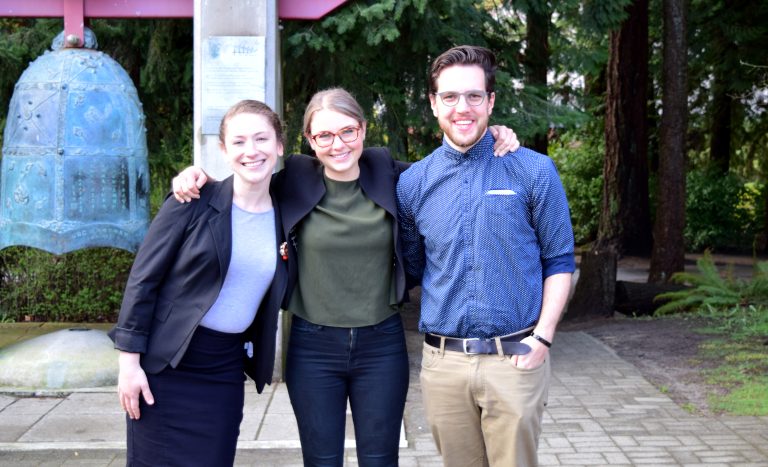
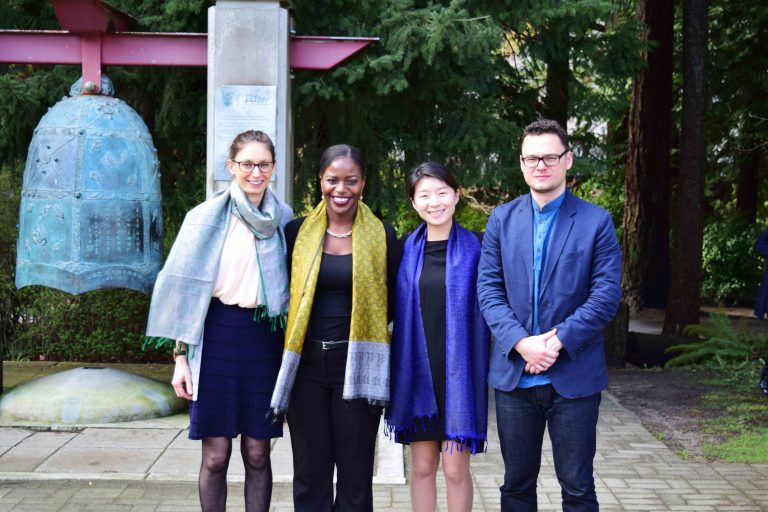
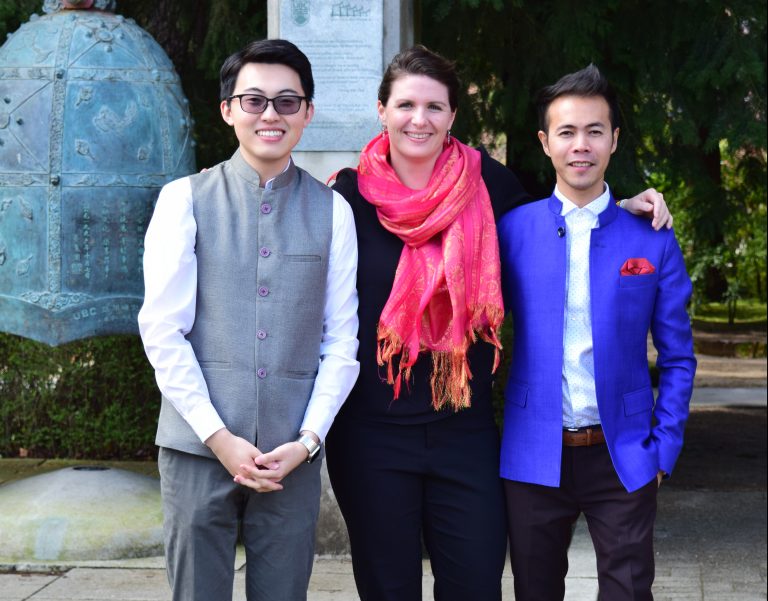
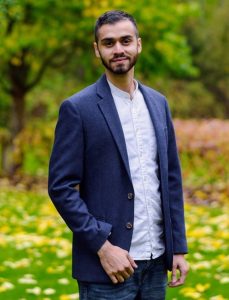 Bassam Javed is currently a PhD student at the University of British Columbia’s Institute for Resources, Environment and Sustainability and a recipient of UBC’s Four Year Fellowship. His interdisciplinary research combines quantitative and qualitative methods to develop public policy insights for the sustainability transition in the transportation sector. His research to date has focused primarily on Canada, and on emerging economies, particularly China and India.
Bassam Javed is currently a PhD student at the University of British Columbia’s Institute for Resources, Environment and Sustainability and a recipient of UBC’s Four Year Fellowship. His interdisciplinary research combines quantitative and qualitative methods to develop public policy insights for the sustainability transition in the transportation sector. His research to date has focused primarily on Canada, and on emerging economies, particularly China and India.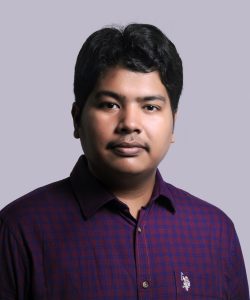 Mrinmoy is a Liu Scholar and PhD student in the UBC Department of Mechanical Engineering and SERB-UBC Fellowship holder. He is jointly supervised by
Mrinmoy is a Liu Scholar and PhD student in the UBC Department of Mechanical Engineering and SERB-UBC Fellowship holder. He is jointly supervised by  Sun Ryung (Sun) Park is a Liu Scholar and PhD student in the department of Political Science and a UBC’s Four Year Fellowship recipient. Her broad research interests center around protectionism, non-tariff measures, and US-China rivalry in global trading governance. Before coming to UBC, she earned her MA and BA degree in Political Science and International Relations from Korea University, Seoul, Korea. She also worked as a research intern at the Korea Society, New York, USA, and as a research associate at East Asia Institute, Seoul, Korea.
Sun Ryung (Sun) Park is a Liu Scholar and PhD student in the department of Political Science and a UBC’s Four Year Fellowship recipient. Her broad research interests center around protectionism, non-tariff measures, and US-China rivalry in global trading governance. Before coming to UBC, she earned her MA and BA degree in Political Science and International Relations from Korea University, Seoul, Korea. She also worked as a research intern at the Korea Society, New York, USA, and as a research associate at East Asia Institute, Seoul, Korea.
